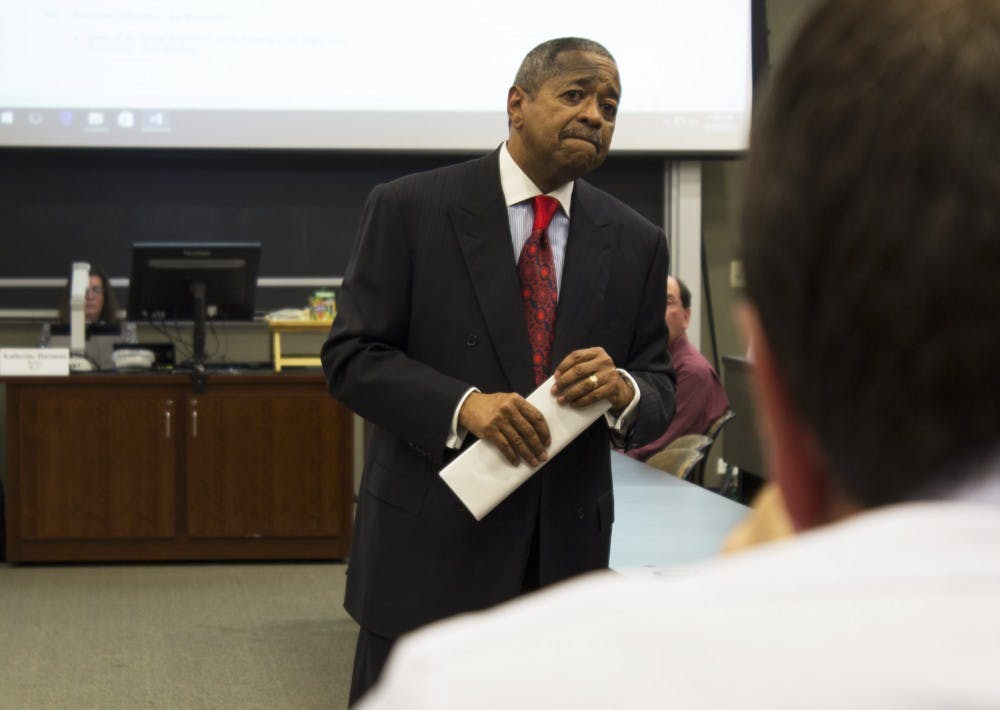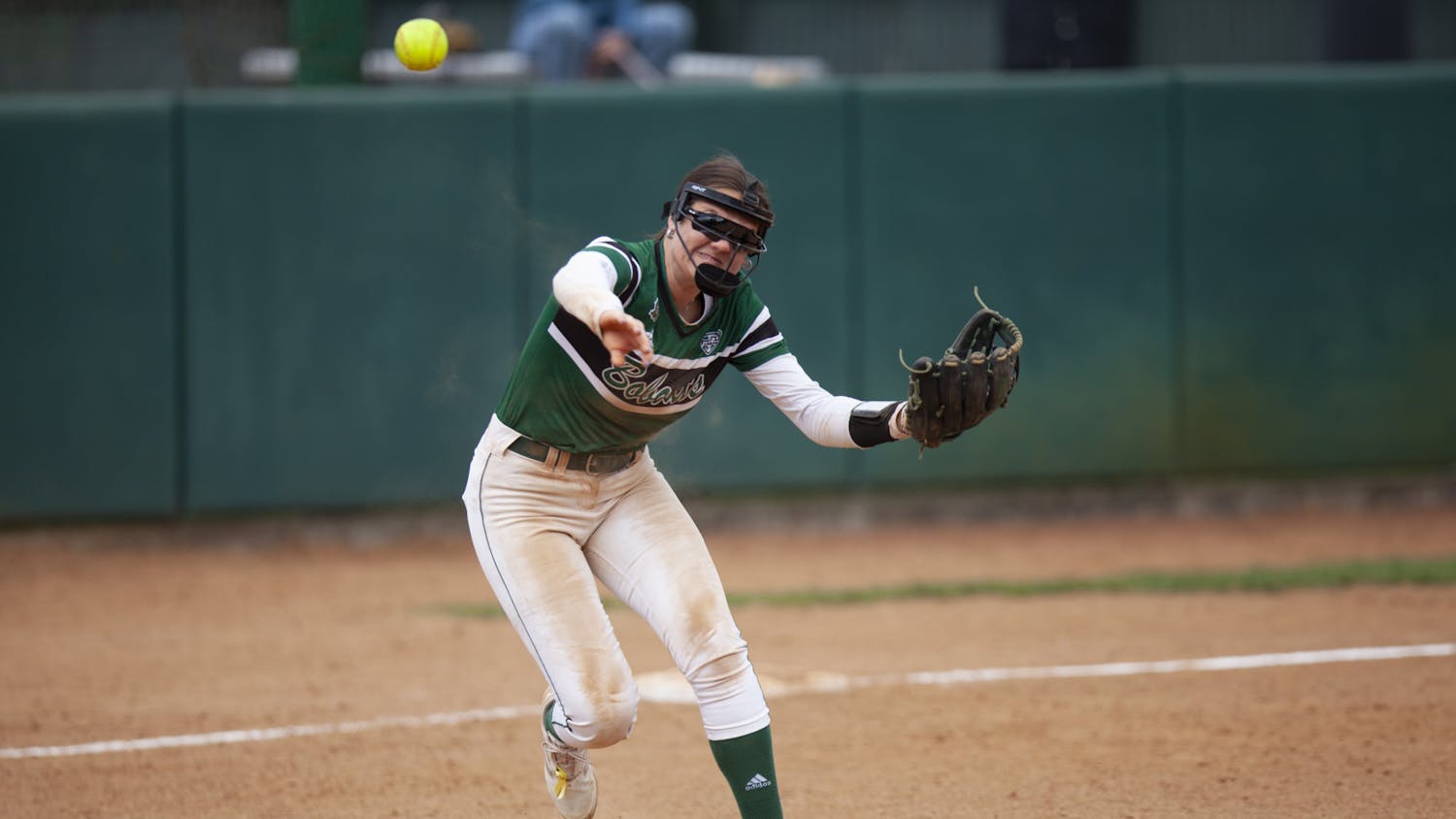Ohio University President Roderick McDavis fielded questions during his final Faculty Senate meeting Monday, but refused to respond to one student.
Olivia Busby, an OU student who was arrested Wednesday during a sit-in at Baker Center, spoke second to last before roll call. She criticized Assistant Dean of Students Jamie Patton — who watched both the demonstration and the arrests that followed — and McDavis for allowing the arrests to take place as black men.
“And to be … a black woman, and see Jamie Patton, a black man, sitting there letting the police take us like that when you have students sitting in a circle crying their eyes out because they don’t know what the police are going to do, in this climate today, is disgusting,” she said.
McDavis only shook his head.
“No comment?” Busby said. “Typical.”
Faculty senators, journalists and students, including several who were arrested Wednesday, packed the meeting room in Walter Hall. Some people couldn’t find seats and stood in the back.
The meeting began at 7:10 p.m. with McDavis reading from a written statement. He said there is no need for OU to become a sanctuary campus because it already protects students. Declaring OU a sanctuary campus would jeopardize its funding, he said.
He also said the OU Police Department acted in the interest of student safety Wednesday.
“Officers were able to control the situation and thankfully, no one was injured,” he said. “And I support their decision.”
OU Provost Pam Benoit spoke about enrollment and OU’s attempts to decrease the cost of textbooks. Then she and McDavis took questions.
Attendees criticized McDavis for not showing up to speak with the demonstrators Wednesday. They said the administration’s stance on Trump’s immigration policy was not strong enough. They pointed out that when students occupied Baker Center in November 2014 after a grand jury’s decision not to indict Darren Wilson, the students stayed in Baker past the midnight closing without arrest.
Jolana Watson and Bobby Walker, both of whom were arrested during Wednesday’s demonstration, called upon McDavis to have the charges against the demonstrators dropped and to establish a sanctuary campus.
“We believe that the purpose of the university education is to empower students to participate in the collective transformation of our world,” Watson said. “Sometimes that mobilization takes the form of a petition or a panel. Sometimes it takes the form of a rally or sit-in, like Wednesday’s.”
Both McDavis and OU General Counsel John Biancamano said that once OUPD Chief Andrew Powers warned protestors that they would be arrested, he had to follow through.
“Our law enforcement officials have to have some credibility,” Biancamano said. “If they give a warning and then rescind it, what is to stop the protesters from coming back?”
His statement drew shouts from the assembly. Some interpreted it to mean that OUPD arrested the students to deter future protests.
As the session grew more heated, attendees, Benoit and McDavis raised their voices and talked over each other at points.
“To say that we are oblivious is absolutely wrong,” McDavis said. “To say that this administration has not done anything on this issue is dead wrong. We have done a lot. We will continue to do a lot.”
After McDavis and other university officials left, faculty senate passed two resolutions.
The first called upon OU administrators to request that criminal charges against the 70 arrested students be dropped, that the arrested students not receive any student code of conduct charges and urged McDavis and Benoit to hold a public forum to respond to the arrested students’ grievances.
The second condemned Trump’s executive order on immigration and asked OU administration to do the same.
Each resolution received two dissenting votes.






